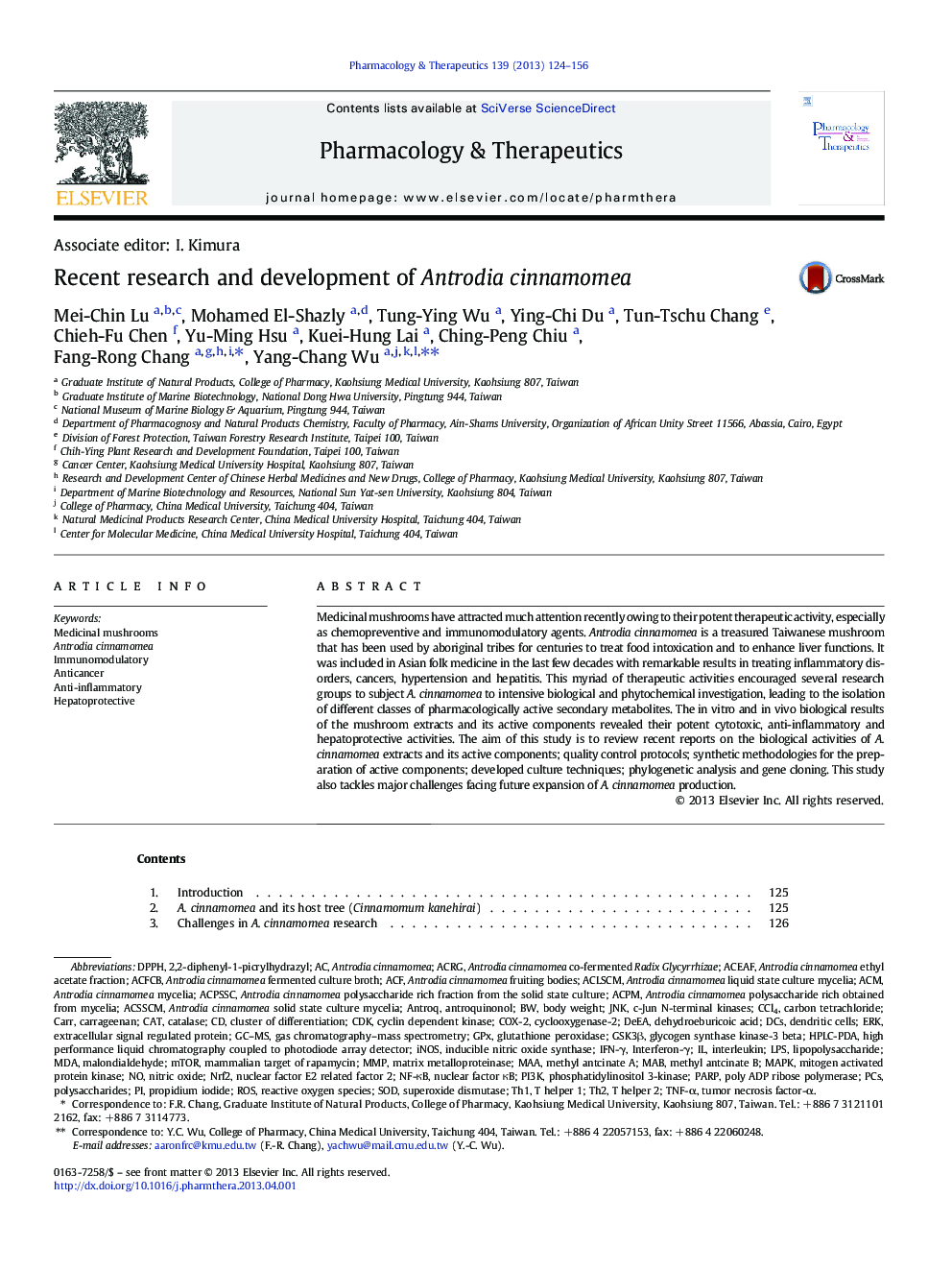| Article ID | Journal | Published Year | Pages | File Type |
|---|---|---|---|---|
| 2563203 | Pharmacology & Therapeutics | 2013 | 33 Pages |
Medicinal mushrooms have attracted much attention recently owing to their potent therapeutic activity, especially as chemopreventive and immunomodulatory agents. Antrodia cinnamomea is a treasured Taiwanese mushroom that has been used by aboriginal tribes for centuries to treat food intoxication and to enhance liver functions. It was included in Asian folk medicine in the last few decades with remarkable results in treating inflammatory disorders, cancers, hypertension and hepatitis. This myriad of therapeutic activities encouraged several research groups to subject A. cinnamomea to intensive biological and phytochemical investigation, leading to the isolation of different classes of pharmacologically active secondary metabolites. The in vitro and in vivo biological results of the mushroom extracts and its active components revealed their potent cytotoxic, anti-inflammatory and hepatoprotective activities. The aim of this study is to review recent reports on the biological activities of A. cinnamomea extracts and its active components; quality control protocols; synthetic methodologies for the preparation of active components; developed culture techniques; phylogenetic analysis and gene cloning. This study also tackles major challenges facing future expansion of A. cinnamomea production.
